This article was co-authored by Courtney Fose, RD, MS. Courtney Fose is a Registered Dietitian and Certified Nutrition Support Clinician at the University of Arkansas for Medical Sciences. She has worked as a Dietitian since 2009, and received her MS in Clinical Nutrition from the University of Arkansas in 2016.
There are 41 references cited in this article, which can be found at the bottom of the page.
This article has been viewed 56,374 times.
The Mediterranean diet is a balanced and complete set of eating habits that can help you lose weight, especially when paired with a healthy lifestyle. The Mediterranean diet is low in red meat, saturated fat, and sugar, and high in whole grains, produce, and healthy fats and oils. [1] Traditionally used by people living along the Mediterranean Sea, where researchers noticed the highest adult life expectancy and lowest rates of coronary heart disease,[2] sticking to this diet can help you lose weight while still getting the proper vitamins, minerals, and nutrients you need.[3]
Steps
Eating the Right Foods
-
1Cook with extra-virgin olive oil. Losing weight with the Mediterranean diet does not involve avoiding fat entirely, it just involves eating the right type of fat. Extra-virgin olive oil is the fat of choice to use for cooking and dressing foods. This should largely take the place of butter in your diet.[4] Olive oil may even be the key to the health benefits of the Mediterranean diet.[5]
- Believe it or not, studies show that eating a diet containing good fat from olive oil and nuts actually helps people lose more weight than eating a fat-restricted diet.[6]
- Of course, even good fats contribute to calories,[7] so be mindful about quantity. Fry or sauté vegetables with a tablespoon of olive oil; add more if needed.
-
2Enjoy lots of whole grains. Whole-grain pasta, bread, rice, quinoa, and cereal are the foundation of this diet. Unlike white bread which contains lots of refined sugar, whole grains contain many nutrients and do not contribute to sugar content of a meal.[8]
- Base your meals on whole grains and fresh produce, limiting the size of lean meal portions.
- Eat breads with olive oil rather than butter or margarine.[9]
Advertisement -
3Eat many fresh fruits and vegetables. Fresh produce is a staple of the Mediterranean diet. Pomegranate, grapes, figs and other orange and purple fruits are delicious and reduce the risk of heart disease. Cantaloupe, peaches, and nectarines contain antioxidants that improve your health and help your body get good natural sugars, minerals, and vitamins from your food. Include green leafy vegetables like kale, broccoli, and spinach in your meals, which are rich in nutrients like Vitamin A, Vitamin K, folate, fiber, potassium, and magnesium.[10]
-
4Make fish your main animal protein. Include a serving of fish in your meal at least twice per week. Fish is the main source of animal fat and protein in the Mediterranean diet. Unlike red meat, fish hardly contains any saturated fat — but it’s rich in good fat like omega-3’s, which are good for weight loss as well as brain and heart health.[13]
- The best fish choices are salmon, halibut, albacore tuna, herring, sardines, trout, and mackerel.
- Avoid fried fish. Rather bake, broil, sauté, or grill your fish.[14]
-
5Eat lean poultry. If you eat poultry like chicken and turkey, keep the serving size to 3 ounces or less.[15] Avoid adding fat content to your meal by frying the poultry; rather bake, broil, steam, or grill it.[16] For the healthiest poultry option, remove the skin before eating it.[17]
- Have poultry or eggs several times per week, about every two days.[18] Eat no more then four egg yolks per week, though you can have more egg whites.
-
6Include nuts and seeds in your diet. Like olive oil, nuts contain good fats. Almonds, cashews, and walnuts contain protein and fiber, as well. Nuts are high in calories, however, so eat about a handful of nuts a day for health benefits.[19] Beans, lentils, peas, and seeds are also great to add to a dish or as a snack.[20]
- Avoid salted or candied nuts, which contain extra sugars and fats.
- Natural peanut butter and tahini are good additions to your diet.[21]
-
7Choose low-fat dairy. Skip whole milk and opt for 1% or skim milk instead. The same goes for cheese, ice cream, and yogurt.[22] Eat moderate portions of dairy and yogurt regularly — every day, or at least several times per week.[23]
- Try alternatives to cow’s milk like goat or sheep; alternate cheeses can also be delicious.[24]
-
8Season your food with herbs. Rather than adding extra salt or butter to your meals for flavor, season your food with herbs and spices. Some great options include basil, parsley, cilantro, mint, rosemary, thyme, sage, chives, dill, and oregano.[25]
-
9Enjoy red wine in moderation, if you’d like. Red wine is a staple of the Mediterranean diet, and can have some health benefits when enjoyed in moderation. “Moderation” means 5 ounces of wine a day (148 ml) for women and men over the age 65, and 10 ounces (296 ml) a day for men under 65. This is about 1 glass for women and 2 glasses for men. You do not need to start drinking if you don’t already.[26]
Avoiding the Wrong Foods
-
1Significantly reduce the sugar in your diet. Refined sugars come from pastries, cookies, pies, cakes — items from the bakery and snack-food aisle. Refined sugar also shows up in white bread and rice.[29] The Mediterranean diet includes very little to no refined sugar, so aim to eliminate these products from your diet.[30] Switching from white to whole grains is a great step.
- Try using natural sweeteners in coffee and cooking like honey, molasses, or agave.
-
2Eliminate butter and margarine from your meals. Replace butter in cooking with olive oil. Put hummus, olive oil, or tahini on bread instead of margarine or butter.[31] Use non-stick cookware so you don’t have to grease with butter. Experiment with recipes that replace butter with healthier alternatives.
- For instance, replace butter with applesauce or prune puree in baking recipes.[32]
-
3Save red meat for special occasions. Red meat is rarely included in the Mediterranean diet. Limit red meat consumption to two to three times per month. When you do eat it, be sure to get lean cuts of meat. Keep your meat serving to about the size of a deck of playing cards.[33]
Making Weight-Loss a Habit
-
1Consult your doctor or dietitian for help, if needed. Lots of recipes are available online, but if you want more help creating a diet plan for yourself, talk to your doctor or request a referral to a dietitian. They can help you come up with specific meal plans and recipes tailored to your body and needs.[36]
-
2Make meals a social time. Part of the Mediterranean diet is more than what you eat, it’s how you eat. Try to sit down to meals with family and friends at least 2-3 times per week, eat slowly, and — if you’d like — enjoy a glass of red wine. Embracing the culture of leisurely eating can help you identify when you’re full, and taking time to relax and be social can lower stress — both of which help with weight loss and overall health.[37]
-
3Cook from scratch. A healthy diet contains almost no frozen, packaged, or pre-processed foods. Avoid the snack-food aisle and anything premade, which usually contain lots of fat, salt, and preservatives. The healthiest meals come from fresh products — fresh produce (or sometimes frozen, but never canned), fresh meats (not pre-prepared), and uncooked grains that you make at home yourself.
- Try to make a meal plan at the start of the week and go shopping for fresh ingredients.[38]
-
4Exercise portion control. You're not going to lose weight if you’re eating twice as much food as you need, even if you’re sticking to your diet. Consider some basic portions guidelines to keep in mind when preparing, and plating, your meals:[39]
- A serving size of whole grain pasta (cooked) is half a cup — about the size of a hockey puck. This is about 70 calories.
- 2/3 cup of cottage cheese is about the size of 4 playing dice. This counts as a serving of dairy or protein, and is about 110 calories (if it’s low-fat cottage cheese).
- You get one serving of fat from 1.5 teaspoons of peanut butter — about the size of two dice.
- 7 whole almonds is around 45 calories, or a fat serving.
- A serving of protein (around 110 calories) equals 2 ounces of cooked lean beef, a little smaller than a deck of playing cards. Alternately, 3 ounces of fish (grilled or broiled, not fried), two slices of tofu, or 2.5 ounces of broiled and skinless chicken.
- 2 cups of raw spinach is about the size of two baseballs — and counts as one vegetable serving; so does a whole red bell pepper. A small apple is a fruit serving.
-
5Choose healthy options at restaurants. Restaurants often cook with a lot of butter and fat to improve how food tastes. Try your best to stick to your Mediterranean diet while eating out. Request that your food be prepared with olive oil instead of butter, ask for sauces and dressings on the side (these usually contain a lot of fat), and start your meal with a salad dressed with olive oil and vinegar.
-
6Exchange the wrong foods for the right ones gradually. It’s hard to completely change your diet overnight. Start by exchanging some of your unhealthy foods for those foods preferred in the Mediterranean diet. You’ll find it easier to stick to a diet if you make changes slowly.
- Switch out red meat for fish one to two times per week to start, and gradually increase that amount.
- Begin to decrease serving sizes of meat and increase serving sizes of whole grains, fruits, and vegetables. Try to limit meat to 3 ounces and base the bulk of your meals on grains, produce, and nuts and legumes (lentils, beans, and peas).
- Snack on fresh vegetables with a dip like hummus or tahini, instead of eating snack-food aisle junk like potato chips.
- Have fresh fruit for dessert instead of pastries. Fruit is sweet and healthy.
-
7Keep a food journal. In addition to eating healthier foods, keeping track of your calories is a great way to lose weight while dieting. The average adult needs to eat around 2,000 calories per day.[40] However, to lose weight you have to burn more calories than you eat — so to lose about a pound (0.45kg) per week, aim for 1,500 daily calories or fewer. Read food labels, identify serving sizes, and record what you eat in order to tally calories.[41]
- Use a notebook, diary, excel sheet, or wall chart — whatever helps you stay organized.
- The best way to lose weight is to have an overall healthy lifestyle. In addition to the Mediterranean diet, try to get at least 30 minutes of heart-pumping exercise at least 5 days per week.[42]
References
- ↑ https://www.helpguide.org/articles/diets/the-mediterranean-diet.htm
- ↑ https://www.hsph.harvard.edu/nutritionsource/healthy-weight/diet-reviews/mediterranean-diet/
- ↑ https://my.clevelandclinic.org/health/articles/16037-mediterranean-diet
- ↑ https://health.clevelandclinic.org/olive-oil-vs-coconut-oil-which-is-heart-healthier/
- ↑ https://www.ncbi.nlm.nih.gov/pmc/articles/PMC6949890/
- ↑ http://nypost.com/2017/01/23/why-the-mediterranean-diet-is-still-the-best-way-to-lose-weight/
- ↑ https://my.clevelandclinic.org/health/articles/4182-fat-and-calories
- ↑ https://www.health.harvard.edu/blog/a-practical-guide-to-the-mediterranean-diet-2019032116194
- ↑ https://www.helpguide.org/articles/diets/the-mediterranean-diet.htm
- ↑ https://www.kidney.org/atoz/content/what-plant-based-diet-and-it-good-kidney-disease
- ↑ https://www.ars.usda.gov/plains-area/gfnd/gfhnrc/docs/news-2013/dark-green-leafy-vegetables/
- ↑ https://my.clevelandclinic.org/health/articles/17079-heart-healthy-diet
- ↑ https://www.hsph.harvard.edu/nutritionsource/healthy-weight/diet-reviews/mediterranean-diet/
- ↑ https://www.betterhealth.vic.gov.au/health/healthyliving/fats-and-oils
- ↑ https://www.ncbi.nlm.nih.gov/pmc/articles/PMC6600057/
- ↑ https://www.betterhealth.vic.gov.au/health/healthyliving/fats-and-oils
- ↑ https://www.uhcw.nhs.uk/download/clientfiles/files/Patient%20Information%20Leaflets/Clinical%20Support%20Services/Dietetics/Mediterranean%20diet.pdf
- ↑ http://www.health.harvard.edu/blog/adopt-a-mediterranean-diet-now-for-better-health-later-201311066846
- ↑ https://www.researchgate.net/publication/282594972_Contribution_of_Nuts_to_the_Mediterranean_Diet
- ↑ https://www.albertahealthservices.ca/assets/info/nutrition/if-nfs-mediterranean-style-of-eating.pdf
- ↑ https://baptist-health-ar.s3.amazonaws.com/files/BH-Stroke-Mediterranean%20Diet%20Flyer.pdf
- ↑ https://blog.mass.gov/publichealth/mass-in-motion/medit-diet/
- ↑ https://my.clevelandclinic.org/health/articles/16037-mediterranean-diet
- ↑ https://pubmed.ncbi.nlm.nih.gov/15052494/
- ↑ https://www.nutrition.va.gov/docs/UpdatedPatientEd/Mediterraneandiet.pdf
- ↑ https://www.health.harvard.edu/blog/is-red-wine-good-actually-for-your-heart-2018021913285
- ↑ https://my.clevelandclinic.org/health/diseases/21994-alcoholic-cardiomyopathy
- ↑ https://www.uscjournal.com/articles/grape-extracts-and-risk-factors-cardiovascular-disease
- ↑ https://www.heart.org/en/healthy-living/healthy-eating/eat-smart/nutrition-basics/mediterranean-diet
- ↑ http://www.mayoclinic.org/healthy-lifestyle/nutrition-and-healthy-eating/in-depth/mediterranean-diet/art-20047801
- ↑ https://www.pennmedicine.org/updates/blogs/health-and-wellness/2019/february/mediterranean-diet
- ↑ https://www.albertahealthservices.ca/assets/info/nutrition/if-nfs-making-foods.pdf
- ↑ https://www.health.qld.gov.au/__data/assets/pdf_file/0032/946049/cardiac-meddiet.pdf
- ↑ https://www.heart.org/en/healthy-living/healthy-eating/eat-smart/nutrition-basics/meat-poultry-and-fish-picking-healthy-proteins
- ↑ http://my.clevelandclinic.org/health/articles/reducing-fat-intake
- ↑ https://www.medindia.net/patients/patientinfo/mediterranean-diet-faq.htm
- ↑ https://www.ncbi.nlm.nih.gov/pmc/articles/PMC7967627/
- ↑ https://www.diabetes.org.uk/guide-to-diabetes/enjoy-food/eating-with-diabetes/meal-plans/mediterranean
- ↑ https://www.nhsinform.scot/healthy-living/food-and-nutrition/healthy-eating-and-weight-loss/how-to-lose-weight-safely
- ↑ http://my.clevelandclinic.org/health/articles/reducing-fat-intake
- ↑ https://www.nhlbi.nih.gov/health/educational/lose_wt/eat/calories.htm
- ↑ https://www.cdc.gov/physicalactivity/basics/adults/index.htm
- ↑ http://www.health.harvard.edu/staying-healthy/mediterranean-diet-beats-low-fat-diet-for-long-term-weight-loss
- ↑ https://pubmed.ncbi.nlm.nih.gov/27014505/
- ↑ http://www.bmj.com/cgi/content/abstract/336/7657/1348?maxtoshow=
- ↑ https://movementdisorders.onlinelibrary.wiley.com/doi/10.1002/mds.28464

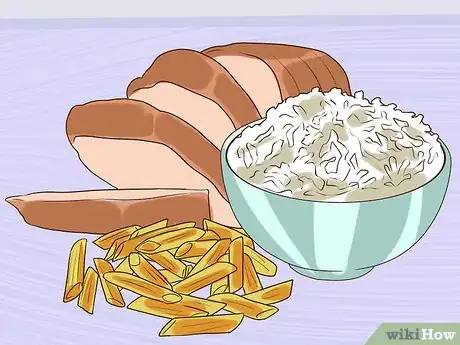

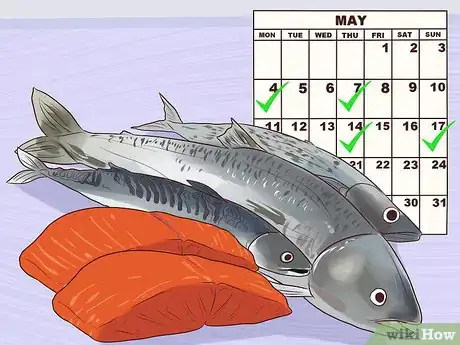
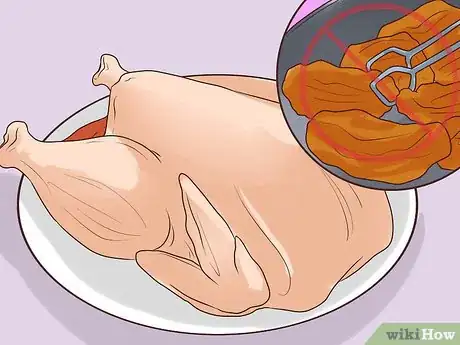
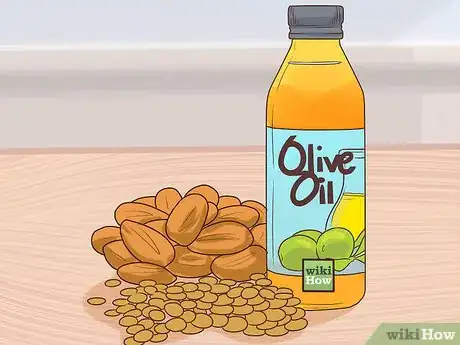



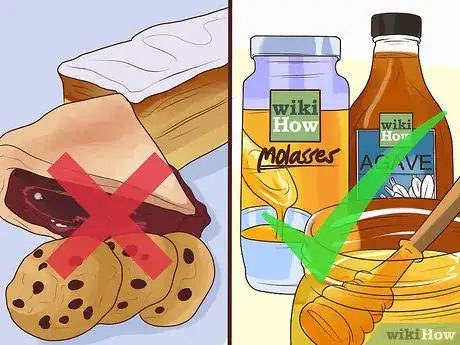
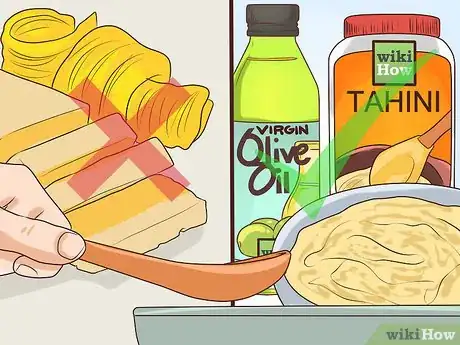
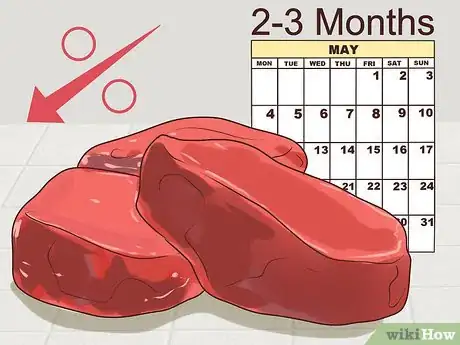
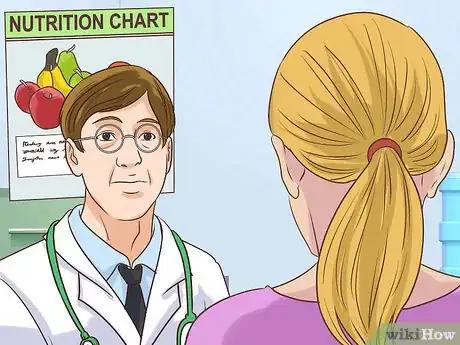


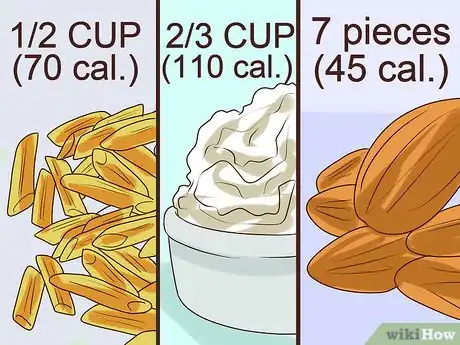

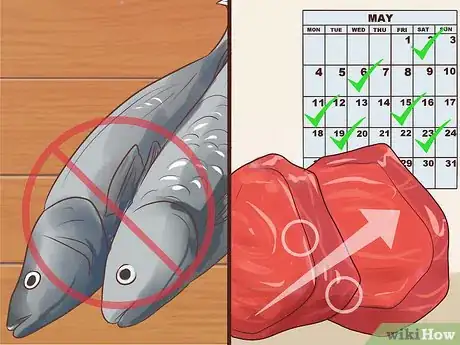





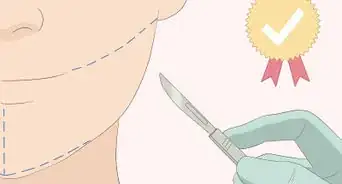






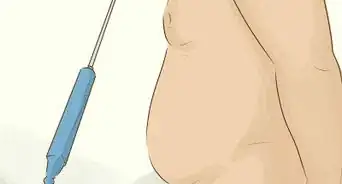
















































Medical Disclaimer
The content of this article is not intended to be a substitute for professional medical advice, examination, diagnosis, or treatment. You should always contact your doctor or other qualified healthcare professional before starting, changing, or stopping any kind of health treatment.
Read More...